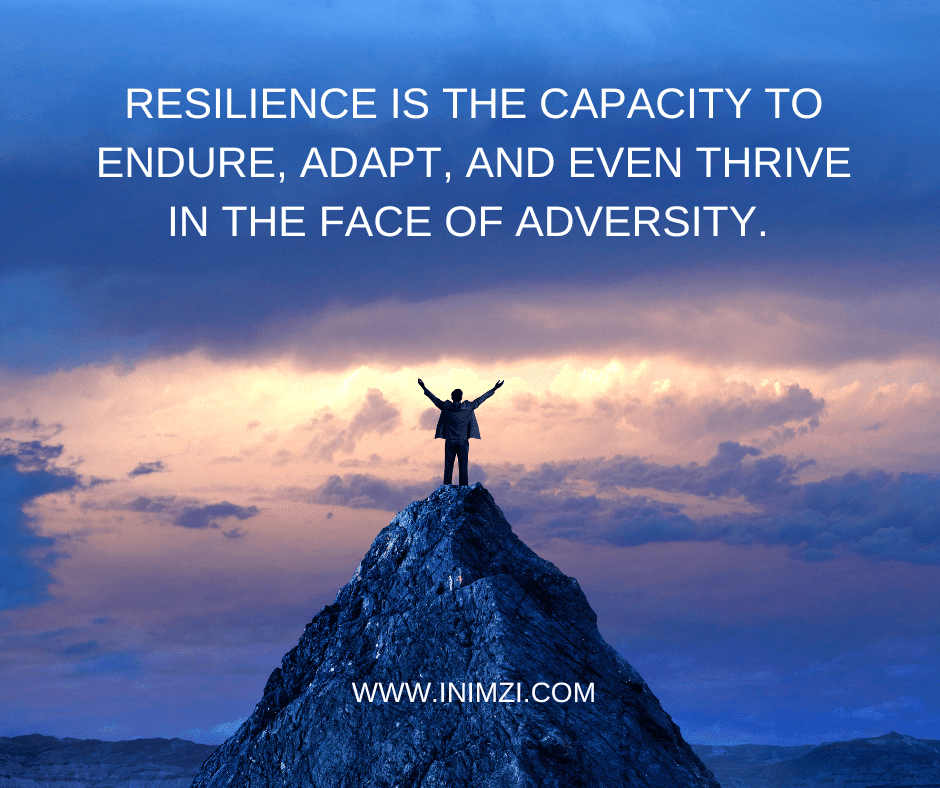The Power of Bouncing Back
Life is an intricate web of uncertainties, presenting us with a constant array of challenges and setbacks. From personal hardships to professional hurdles, the journey is rarely smooth. In the face of adversity, resilience emerges as a fundamental trait that can significantly influence our ability to cope, adapt, and ultimately triumph over life’s trials.
Understanding Resilience
Resilience can be understood as the capacity to endure, adapt, and even thrive in the face of adversity. It’s the ability to bounce back from setbacks, setbacks that might otherwise debilitate or discourage us. Resilience is not about avoiding challenges, but rather about responding to them in a constructive manner.
Resilience is not an inherent trait possessed by only a fortunate few; it is a skill that can be nurtured and developed over time. It involves cultivating mental and emotional strength, enhancing problem-solving abilities, and building a support network. Just like a muscle, resilience can be strengthened through practice and intentional effort.
The Importance of Resilience
- Enhanced Mental Health: Resilience plays a pivotal role in maintaining good mental health. Individuals who are resilient are better equipped to manage stress, anxiety, and depression. They possess a more optimistic outlook, which enables them to navigate through tough times with a sense of hope.
- Adaptability: Life is dynamic, and change is inevitable. Resilience allows individuals to adapt to unexpected changes, whether they stem from personal relationships, career shifts, or global events. A resilient mindset fosters the ability to pivot, innovate, and find new paths when old ones become inaccessible.
- Improved Decision-Making: Resilience enables clearer thinking in times of adversity. Instead of succumbing to panic, resilient individuals maintain their composure, enabling them to make informed decisions based on rational analysis rather than impulsive reactions.
- Achieving Goals: The road to success is often paved with obstacles. Resilient individuals persevere through setbacks and failures, keeping their eyes on long-term goals. This determination propels them forward, even when the path seems uncertain.
Strategies for Cultivating Resilience
- Develop a Growth Mindset: Embrace challenges as opportunities for growth. View setbacks not as failures but as valuable experiences that contribute to your personal and professional development.
- Build a Support Network: Surround yourself with positive, supportive people who can offer encouragement, advice, and a listening ear during tough times. Connecting with others creates a sense of belonging and bolsters emotional resilience.
- Practice Self-Care: Prioritize your physical, emotional, and mental well-being. Engage in activities that bring joy, relaxation, and rejuvenation. Regular exercise, mindfulness, and adequate sleep contribute to resilience by fortifying your body and mind.
- Cultivate Problem-Solving Skills: Develop your ability to analyze challenges objectively and devise practical solutions. Break down complex problems into smaller, manageable tasks, and celebrate your achievements along the way.
- Practice Adaptability: Embrace change as an opportunity for growth rather than a threat. Seek out new experiences, willingly stepping out of your comfort zone to expand your horizons and boost your adaptability.
- Foster Optimism: Cultivate a positive outlook by focusing on your strengths and past successes. Train yourself to reframe negative thoughts into more constructive ones, fostering a sense of hope even in challenging times.
- Practice Resilience through Reflection: When faced with adversity, take time to reflect on past challenges you’ve overcome. This reinforces the belief in your ability to overcome present challenges as well.
Real-Life Examples of Resilience
- Nelson Mandela: Imprisoned for 27 years due to his anti-apartheid activism, Mandela emerged from captivity with a remarkable absence of bitterness. He led South Africa through a peaceful transition from apartheid to democracy, demonstrating his resilience in the face of adversity.
- Malala Yousafzai: After surviving an assassination attempt by the Taliban due to her advocacy for girls’ education, Malala continued her activism with even greater determination. Her resilience in the face of grave danger is an inspiration to millions.
Resilience is not an innate quality, but a skill that can be developed through intentional effort and practice. By cultivating a growth mindset, building a support network, practicing self-care, and nurturing problem-solving abilities, individuals can harness the power of resilience to overcome life’s challenges. Resilience empowers us to adapt to change, maintain our mental well-being, and achieve our goals even in the face of adversity. As exemplified by the stories of renowned figures like Nelson Mandela and Malala Yousafzai, resilience is a formidable force that has the potential to shape the course of history and inspire generations to come.
